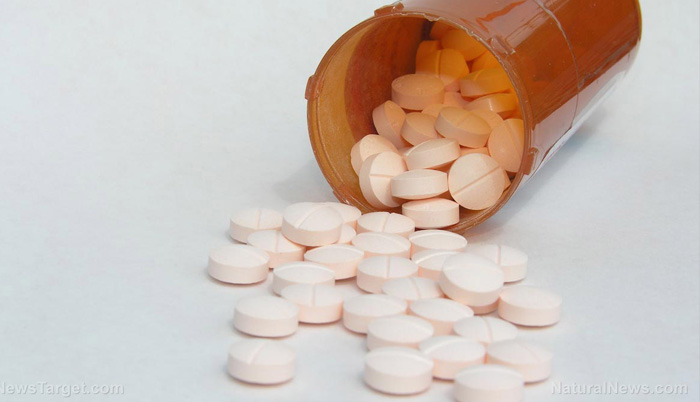![]() Home > Health
Home > Health
Millions Of Patients Are Being OVERDOSED With Blood Pressure Medication, Study Reveals

![]() June 14th, 2017 | 10:26 AM |
June 14th, 2017 | 10:26 AM | ![]() 1466 views
1466 views
NATURALNEWS.COM
Often touted as a “silent killer,” hypertension or high blood pressure affects some 1.13 billion people worldwide — that’s around one in three adults in the United States. If you are on blood pressure medication, then chances are you are being overdosed. A new first-of-its-kind study showed that smaller doses are just as effective as a standard dose, but with fewer side effects.
Hypertension is not to be taken lightly. If left untreated it can lead to serious problems such as heart attack, stroke, kidney disease, and vascular dementia, reported the Daily Mail Online. Hypertension is characterized by blood pressure levels that are consistently at or above 140 mmHg for systolic pressure and/or 90 mmHg for diastolic pressure.
Treating high blood pressure, however, is not always as easy or straightforward as one may think. Professor Anthony Rodgers, the study author from the University of New South Wales in Sydney, explained that 88 percent of those aware of their health issue are treated with medication. Yet only one in three is able to gain control of the condition.
According to the study authors, millions of people may be suffering unnecessary adverse effects from hypertension medication. Since taking one kind of hypertension medication is usually not enough to keep high blood pressure under control, doctors often prescribe a second drug that comes with additional side effects.
Minimizing the side effects plays a crucial role in a patient’s treatment plan. Common side-effects include weakness, dizziness, insomnia, headache, and muscle cramps. Since high blood pressure is notoriously difficult to control, Professor Anthony Rodgers noted that finding new, better ways to treat hypertension is a positive move.
“Because high blood pressure is so common and serious, even small improvements in management can have a large impact on public health,” he said.
Quarter-dose therapies found to be as effective
For the study, published in the journal Hypertension earlier this month, researchers analyzed data from 42 trials involving more than 20,000 patients with hypertension. Each of them was randomly assigned to taking either a placebo or blood-pressure-lowering medication in varying combinations and dosages.
The five main classes of drugs to treat hypertension — angiotensin-converting enzyme (ACE) inhibitors, angiotensin receptor blockers, beta blockers, calcium channel blocker, and thiazides — were included in the review.
When the researchers compared the effectiveness of quarter-dose therapy to both a standard dose or placebo, they found that taking a quarter-dose of one medication did not lower blood pressure as much as a full dose did. However, the team discovered that the combination of two medications in a quarter dose was just as effective as a standard dose. This treatment plan also produced fewer side-effects than a standard dose of one single blood pressure lowering drug.
Furthermore, a cocktail of four hypertension drugs, each at a quarter dose, was found to be nearly twice as effective as taking a single blood pressure lowering medication at the standard dose. Since this finding was based on one trial there was too little information about the possible side effects, the team noted.
In conclusion, the team reported that though further research is needed, quarter-dose combinations could provide improvements in efficacy and tolerability of blood pressure-lowering therapies.
Though their results look very promising, Professor Anthony Rodgers played it safe by noting that people should not reduce the doses of their current medications without further research to confirm their results. Since they have not yet been replicated in larger long-term trials, more research is needed to warrant a change in how doctors currently prescribe blood pressure lowering therapies to their patients, the researchers noted.
Source:
courtesy of NATURALNEWS
by Amy Goodrich
If you have any stories or news that you would like to share with the global online community, please feel free to share it with us by contacting us directly at [email protected]